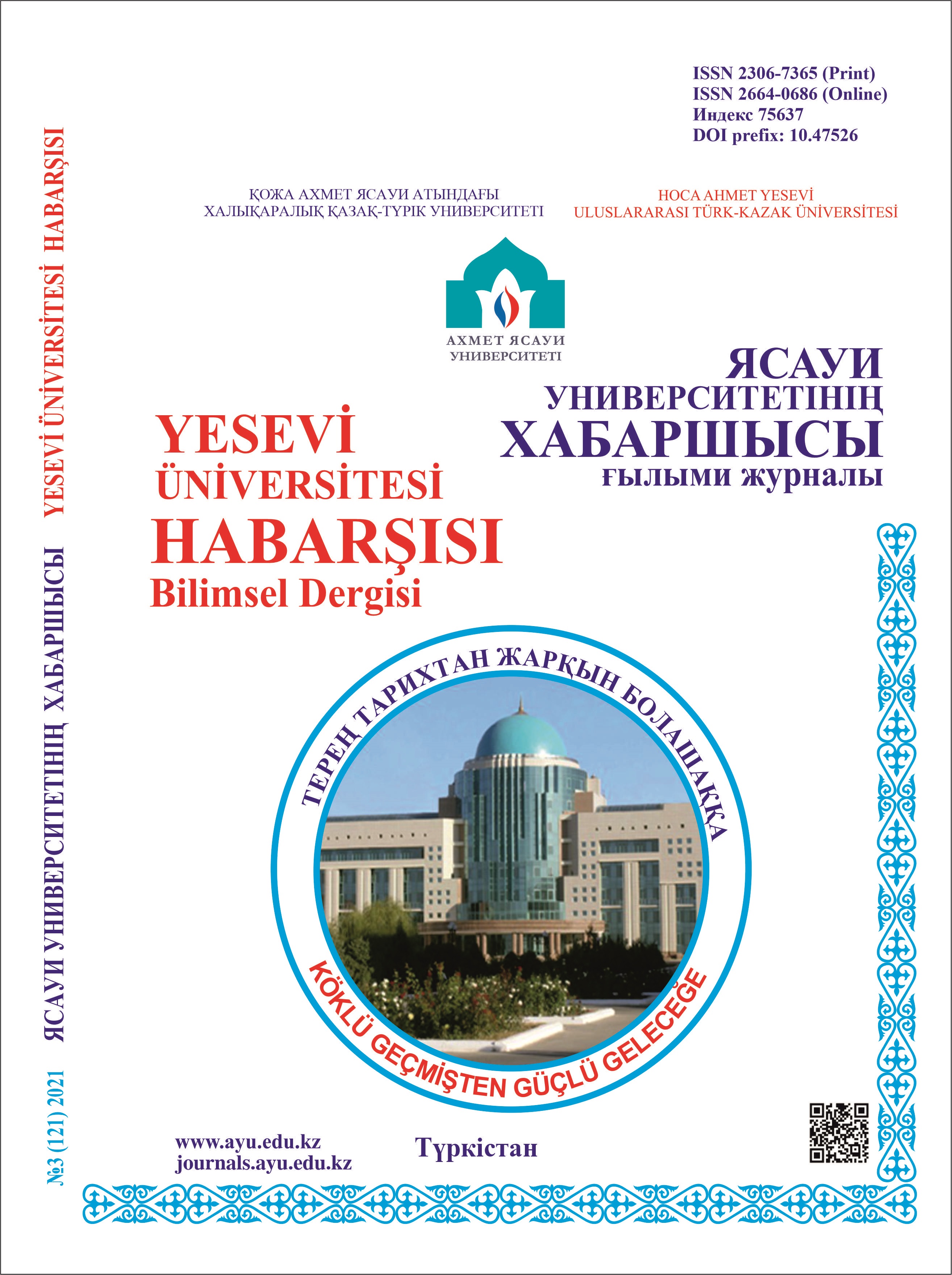Zaman Kavramının Döngüsel Modeli (Tarihsel Şiirin Metinlerine Dayanarak)
298 263
Anahtar Kelimeler:
concept, cognition, time, cognitive linguistics, folklore, literary text, cyclic time.Özet
Language learning in the cognitive direction has become one of the most actual problems today. In particular, the consideration of folklore texts, in which a large linguistic stock of information has been accumulated, in the cognitive aspect will become the basis for obtaining information about the cognition, being, life of this nation. After all, historical songs are one of the most unique genres, in which the rich heritage of our people is collected, the richness of our language is revealed. The concept of «time» is a concept that requires study in linguistics. The fact is that the concept of «time» is one of the main concepts that can give a linguistic picture of the world. In science, this concept is recognized as common to many ethnic groups, creating a linguistic picture of the universe, depending on the national characteristics and experience, background knowledge of each people. In this article, the linguistic units denoting the concept of «time» are extracted from the texts of historical songs, it’s cyclical nature is determined. In linguistic studies, a sufficient number of characters of the concept of «time» are given. Time has cyclic, linear properties. However, the cyclicity of time that we analyze is considered one of the main models proven by science. Our study proves that the cyclical nature of the concept of «time» is connected with the worldview, way of life, religion of the nation. Cyclic time in historical songs is explained by the repetition of processes and it is determined with the lexical units: four seasons, 24 hours, day, night, morning, evening. In addition, examples are given and proved that the lexical units denoting «time» in our language had a symbolic meaning.

